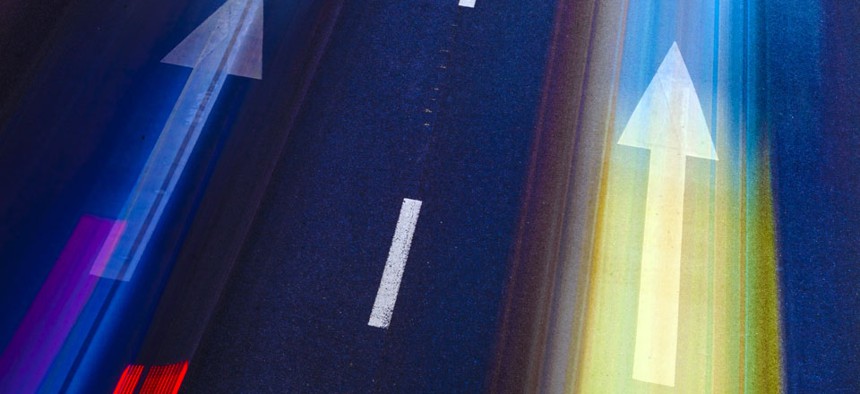A Bill to Ban Internet 'Fast Lanes' Won't Pass. But Here's Why It Still Matters.

zhu difeng/Shutterstock.com
The FCC faces increasing pressure to ban paid prioritization of Internet traffic.
A Democratic bill to ban "fast lanes" on the Internet isn't going to become law.
Republicans have long opposed net-neutrality regulations, and as long as they control the House, they'll block legislation that would restrict the business choices of Internet service providers.
But the Online Competition and Consumer Choice Act, introduced Tuesday by Sen. Patrick Leahy and Rep. Doris Matsui, isn't really about changing the law. It's about sending a message to the Federal Communications Commission.
"We put forth the bill to put increased pressure on the FCC to ban paid-prioritization agreements," an aide to a bill supporter explained.
Net neutrality is the principle that all Internet traffic should be treated equally. The FCC first enacted net-neutrality rules in 2010 that barred Internet service providers from blocking any websites or from "unreasonably" discriminating against any traffic.
A federal court struck those rules down earlier this year, and now FCC Chairman Tom Wheeler is trying to rewrite them in a way that can survive future court challenges. His proposal would still bar Internet providers from blocking websites but would allow providers to charge sites for faster service as long as the agreements are "commercially reasonable."
Internet activists, major Web companies such as Google, and many Democrats on Capitol Hill fear that change could create a two-tiered Internet that benefits the richest corporations and limits free speech.
"Americans are speaking loud and clear—they want an Internet that is a platform for free expression and innovation, where the best ideas and services can reach consumers based on merit rather than based on a financial relationship with a broadband provider," Leahy, the chairman of the Senate Judiciary Committee, said in a statement.
The FCC has been flooded by thousands of outraged comments in recent weeks opposing the "fast lane" proposal.
Christopher Lewis, a lobbyist for the consumer-advocacy group Public Knowledge, said the bill is significant because it shows there is a growing consensus around the idea that net neutrality means companies shouldn't be allowed to pay for faster service.
"I think this is a legislative statement," Lewis said, arguing that Wheeler will have to "take notice" of the outpouring of opposition from lawmakers, investors, and Internet companies.
Wheeler expected to take criticism from Republicans, who are skeptical of the government telling broadband providers how to manage their networks. But the growing opposition to his proposal from Democrats could leave the FCC chief in a tenuous political position. Even the White House has offered little support, noting that the FCC is an "independent agency."
Wheeler needs the votes of both Democrats on the five-member commission to enact his proposed regulations. But those commissioners, Jessica Rosenworcel and Mignon Clyburn, might not be eager to help the chairman if he's all alone on the issue.
A spokesman for the FCC chairman declined to comment on the bill.
The Online Competition and Consumer Choice Act, which also has the support of Sen. Al Franken and Reps. Henry Waxman and Anna Eshoo, would instruct the FCC to enact rules banning paid prioritization within 90 days of the bill becoming law. The bill would also call for rules banning Internet providers from favoring content they own or are affiliated with.
The bill avoids the contentious debate over the FCC's authority. Many net-neutrality supporters argue that the only way to enact rules that can survive in court is to reclassify Internet providers as "common carrier" utilities under Title II of the Communications Act. But Republicans and Internet providers argue that utility-style regulation of the Internet would discourage investment and stifle economic growth.
(Image via zhu difeng/Shutterstock.com)






